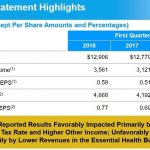Consumer demand for non-discretionary items is falling, especially for big ticket items like autos. Inventory across the board is at high levels. But input prices have been rising along with energy costs.
Nonetheless, Chinese factories are pondering a move likely to further dampen demand: hike prices.

Bloomberg reports China as Factory to World Mulls the Unthinkable: Price Hikes.
China’s factories may be on the cusp of delivering a new shock to the global economy after years of undercutting rivals with cheaper costs. This time, increases in prices could reverberate around the world.
To understand why, consider the dilemma facing Jiangmen Luck Tissue Mfy Ltd., now caught in a squeeze between surging wages and tepid demand. The company has already slashed staff by half, shaved prices and automated production to survive. Now, with margins razor thin, it’s weighing the first price increases since 2010.
“There’s just no possibility for me to cut prices any more,” says deputy director Roger Zhao, 52, whose company is based in the city of Jiangmen in southern Guangdong province. “Because costs are already pretty high and I don’t see any possibility they’ll go down, I’m seeking opportunities to raise prices a little bit.”
“China’s return to positive growth in producer prices marks a very significant turning point in deflationary pressures both in China and globally,” said Shane Oliver, head of investment strategy at AMP Capital Investors in Sydney. “This is only step one, though. We are still waiting for step two: stronger global demand and trade.”
Yet deflation remains a headache for some. At toy drone maker Shantou Chuangxiang Toys Factory in Guangdong, sales manager Sheila Yip says prices are falling on 90 percent of her products because of intense competition from new rivals. The company is only able to increase prices on products with innovative features, she said.
China’s producer price index will weaken again after the first quarter of next year because the “root causes of disinflationary pressures — overall investment and excess capacity — are still very much alive,” Morgan Stanley analysts led by New York-based economist Ted Wieseman wrote in a note Monday.

















Leave A Comment